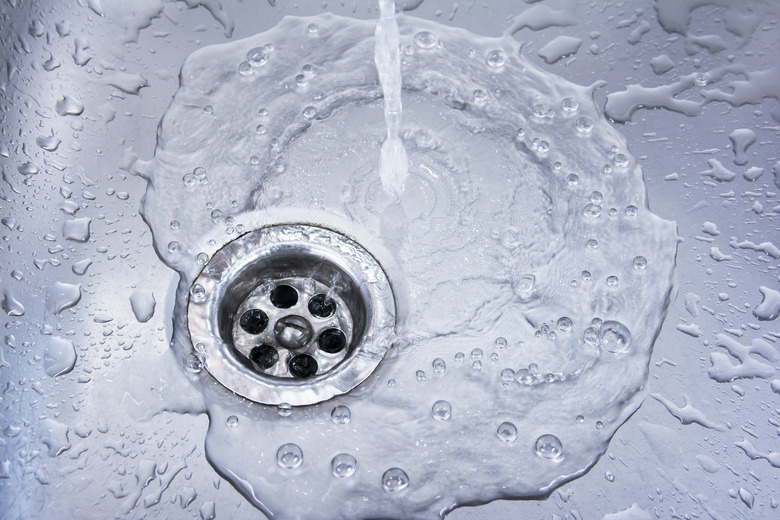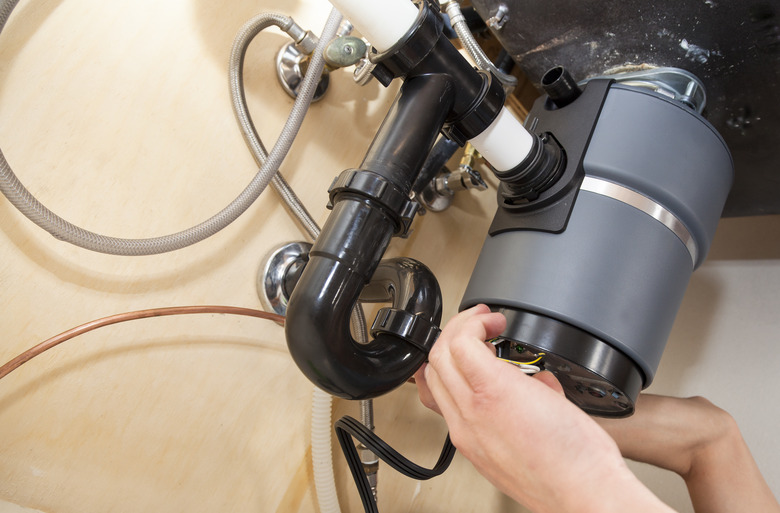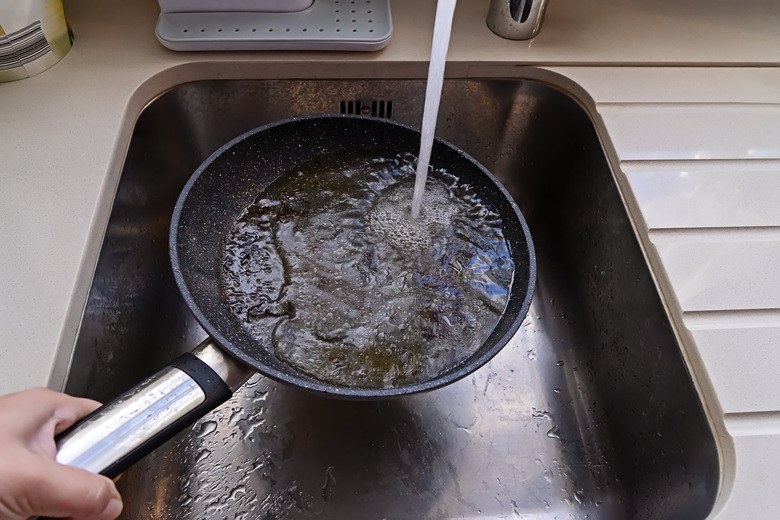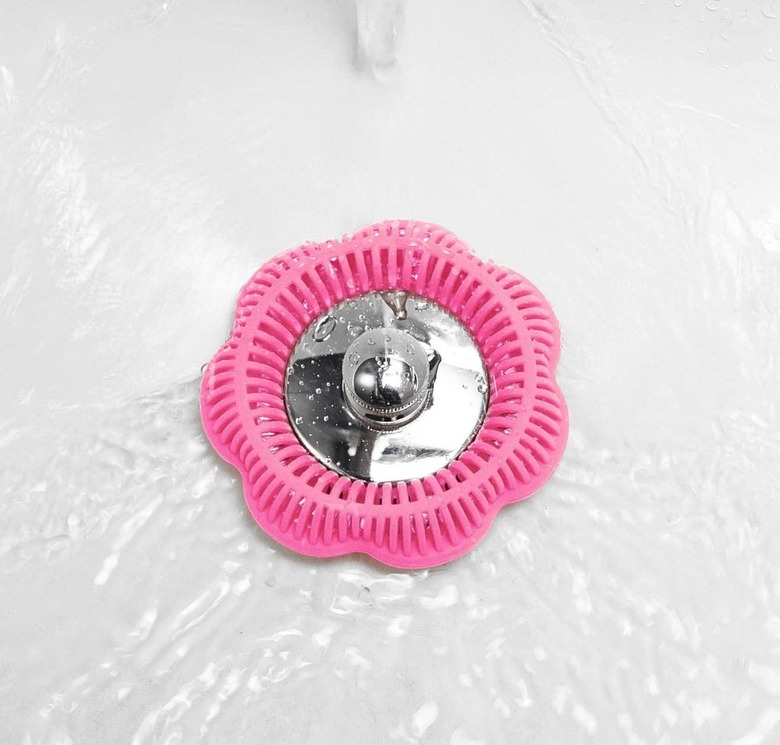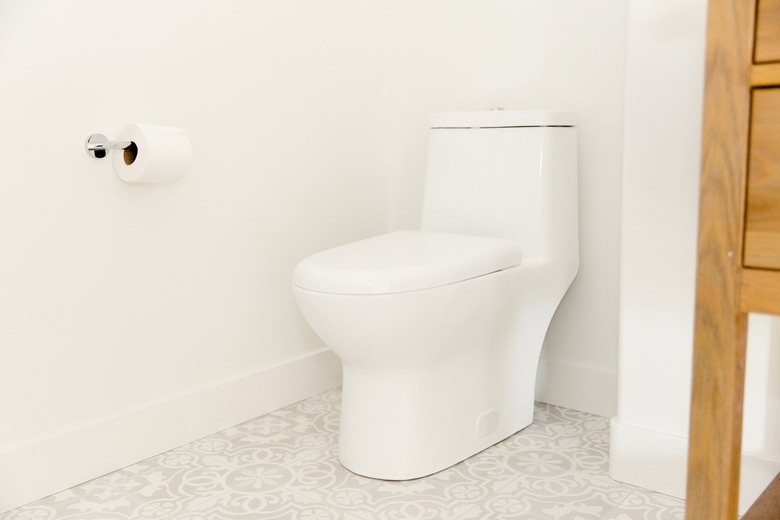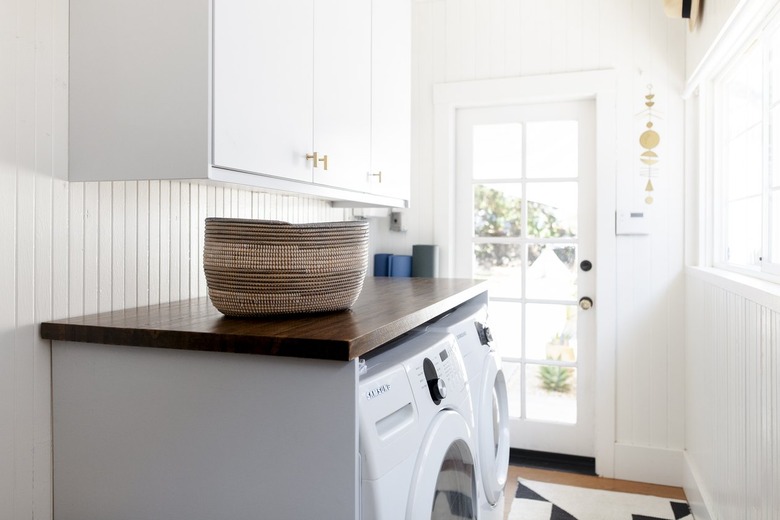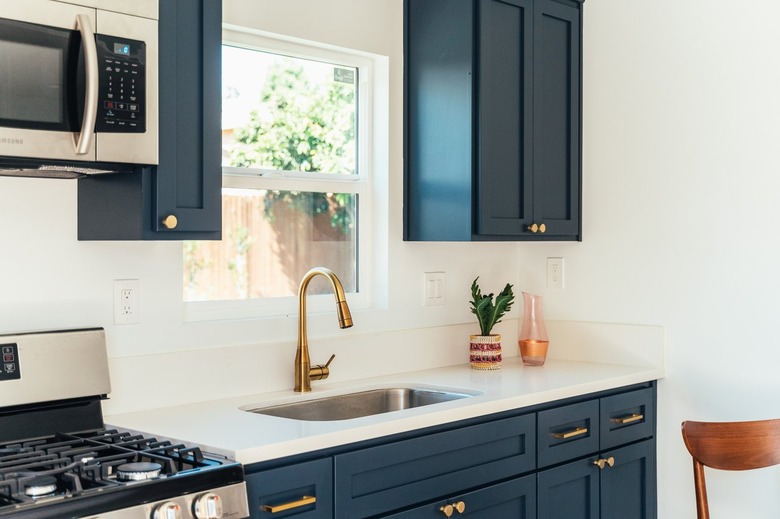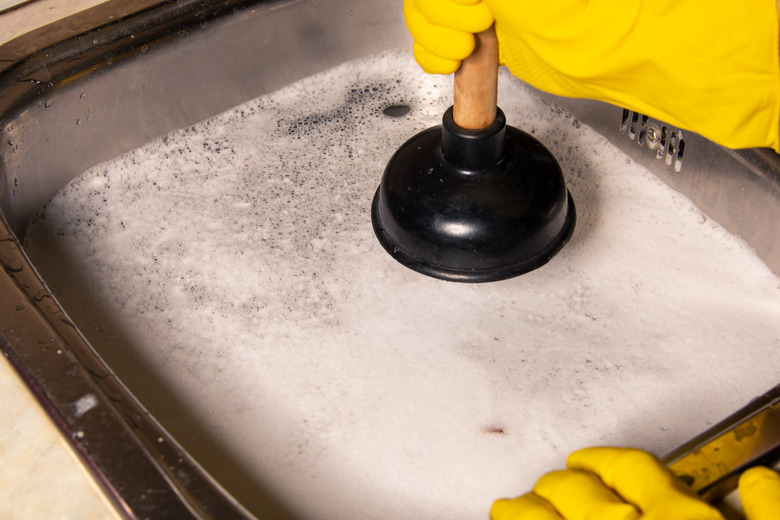7 Tips To Keep Your Drains Clear For Good
A drain clog is one of life's most annoying problems — and perhaps one of the biggest questions on Google — but luckily, there are a number of things you can do to prevent clogs before they even become an issue. In fact, most of the clog-preventing steps you can take are easy and cheap, if not free. They're also fast.
Ready to never hover over a sink with a drain snake again? Here are seven tips that are guaranteed to reduce clogs and keep your pipes flowing.
1. Understand your garbage disposal.
Garbage disposals are great, but they're not meant to tackle large piles of waste. They're made to handle small amounts of food, like those first few leaves off a fresh head of lettuce or the occasional carrot. Large wads of food, like all the scrapings from your family's dinner plates, often prove too much for them and ultimately cause buildup in the drain.
Some foods should never go into the garbage disposal at all, as they tend to get wrapped up in the blades (or miss the blades altogether), causing clogged drains instead of getting minced and flushed away. These foods include coffee grounds, potato skins, banana peels, eggshells, corn husks, pasta, and vegetable peels. When you do use your garbage disposal, always make sure you run lots of cold water down the drain.
2. Can your cooking grease.
Bacon grease and other oils solidify when they cool, and that's a big problem if it happens in your drain. A lot of people think it's okay to pour cooking grease down the kitchen sink as long as you flush the drain with lots of hot water when you do it. But this is actually a myth. All this does is push the grease further along the pipe, making the potential clog even more difficult to reach and fix.
Instead, save an old coffee can or another container with a lid. Pour your cooking grease into it when you're done cooking and let it solidify. Keep using the same can until it's full, at which point you can throw it in the trash, recycle it, or even re-use it in another recipe.
3. Get a handle on the hair.
You're ready to step out of the shower, and there it is: a little pile of your hair looking up at you from the drain. You don't want to touch it. It's wet and gross and probably hanging just far enough into the drain to bring some extra gunk along when you pull it out. If you grab a tissue and wipe out the drain now, you can deal with the problem for free. If you pretend you didn't see it, it may work its way farther into the drain and cause a massive clog (and a plumbing bill) later.
If you or someone in your home has long hair, it's a good idea to get a wire mesh cover for the tub or shower drain. This will catch the hair before it gets to the drain. You can then lift the mesh out of the tub and dump it into the trash can without ever having to touch a wet wad of hair. Still grossed out? Brush your hair before you shower so less of it ends up in the drain.
4. Be a discerning flusher.
Toilet clogs are just inevitable, but to prevent the worst of them, you need to make sure that only human waste and toilet paper go down the drain. Over the last few years, many menstrual products have started claiming that they're safe for sewer and septic systems, but the plumbers who have to pull these items out of clogged sewer pipes strongly disagree and kindly request that these items not get flushed.
5. Recycle your pantyhose.
Pantyhose may have fallen out of fashion some time ago, but your washing machine should still wear them. Many washing machines have a hose that drains into a utility sink. Unfortunately, sometimes lint comes through the hose along with the wash water and can clog the drain when it does. To prevent this, simply place an old nylon stocking over the washer's drain hose. When it gets full of lint, throw it away and replace it with a new one.
6. Keep it clean.
Your drains and plumbing pipes aren't ever going to be squeaky clean, but you can help to keep your drains as clean and open as possible with a few simple tips. One is to pour a pot of boiling water down your drains once a week. Hot water can help flush a lot of debris through your plumbing system, including remnants of that cooking grease you're not pouring down the drain anymore.
Another helpful tip is to close the drain stopper and fill your sinks to the brim with water. When the sink is full, pull out the stopper and allow the sink to drain. The water pressure from the full sink can help dislodge small particles in your pipes and wash them away. You can also clean out your pipes by pouring equal parts baking soda and white vinegar down the drain to create a fizzy cleaner. Let it foam for about 10 minutes and then flush the drain with cool water.
7. Deal with clogs appropriately.
One way to prevent future clogs is to deal with current clogs correctly. This means avoiding chemical drain cleaners and clog removers. These products promise a safe resolution to drain problems, but they seldom deliver. In fact, many actually damage your pipes, eroding them and causing bigger problems.
The proper way to deal with a clog is to use a drain snake or auger to clear the clog. You can use a handheld snake for most household drains. For clogs in your home's sewer pipe leading out to the street, you can rent a sewer auger if you're comfortable doing this yourself. The process isn't complicated, and a few YouTube videos can get you up to speed. If you prefer, you can also hire a plumber to do the job. You can also snake your drains once a year even if they're not clogged just to keep things running smoothly.
